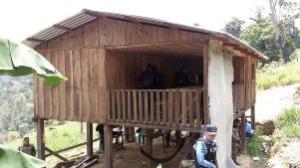Coca grower factions continue to clash in Bolivia, Colombia's new president will move to decriminalize drugs, and more.

Arkansas Marijuana Legalization Campaign Sues to Get Initiative Back on the Ballot. Responsible Growth Arkansas, the group behind a marijuana legalization initiative, has filed suit against the State Board of Election Commissioners after the board earlier this week declined to certify the measure for the November ballot even though it had surpassed the required number of valid voter signatures. The board contended that the ballot title and description did not adequately describe the initiative, but Responsible Growth Arkansas says the board made an "incorrect" decision and "denied the wishes of hundreds of thousands of Arkansans to have the opportunity to vote on the Amendment."
International
Bolivia Coca Conflict Continues. Competing coca grower union factions, one affiliated with the government of President Luis Arce and the other opposed, continued to clash in La Paz this week. Adepcoca, which is the nation's largest coca union, is divided, with one faction now calling for the resignation of Minister of Rural Development Remmy Gonzales. And they are demanding the closure of a "parallel market" administered by coca union leader Arnold Alanez, whom the government recognizes as the leader of Adepcoca, and have filed a lawsuit against the government to force its closure. There are only two recognized coca markets, the Adepcoca market in La Paz and the Sacaba market in Cochabamba, and the Adepcoca growers say the third market is "illegal."
Colombia's Incoming Government Will Move to Decriminalize Drugs. The incoming administration of leftist President-elect Gustavo Petro is preparing drug policy proposals including drug decriminalization as it faces record cocaine production and violence from illegal armed groups and traffickers involved in the trade. Petro takes office on Sunday. His drug policy coordinator, Felipe Tascon, said that Petro also wants to end forced eradication of coca crops and instead concentrate on developing the rural economy. Tascon added that Petro will "speak up louder internationally" to explain that the problem is not drugs but "the problems drug prohibition created" and that "Bolivia, Peru, Chile, Colombia, Mexico, and Brazil, if Lula wins, as progressive countries affected by narcotics can propose it as a block."
Honduras Sends in Military to Stop Illegal Coca Production. Honduran soldiers this week were on a mission to destroy a 75-acre coca field in the rugged mountains of Colon department. It's part of an effort by leftist President Xiomara Castro to prevent the country from becoming a cocaine producer. "In the operation, we are carrying out [they have seized] around 42 manzanas of coca bushes, with an approximate yield of one million 600 plants," the military said. There were also "eight nurseries with 50,000 plants ready for transplanting, six drug laboratories" and "three blocks of marijuana." More than 2.6 million coca plants have been seized this year, the military said. "We already have problems with being a transit and consumer country, but being a producer country would generate a criminality that we could not possibly control," it added.
This work by StoptheDrugWar.org is licensed under Creative Commons Attribution-ShareAlike 4.0 International
Comments
Maybe S. America will provide the drug war leadership so lacking
Someone sure needs to provide leadership on hard drugs. All we're doing is taking baby steps.
Add new comment